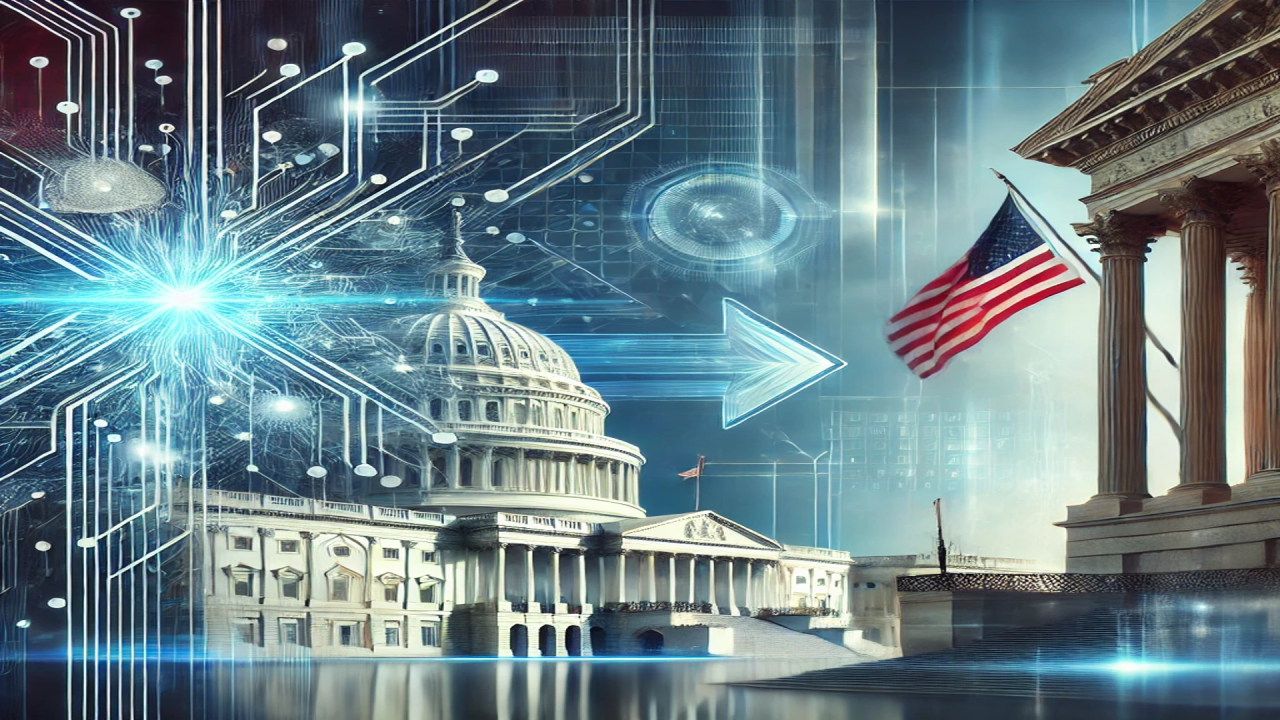How the US is Regulating AI Investments for Security & Growth

January 30, 2025
The United States government is ramping up its control over artificial intelligence (AI) funding to ensure national security, economic competitiveness, and ethical development. With AI emerging as a key driver of technological advancement, Washington is implementing strategic funding regulations to oversee investments, protect sensitive AI research, and maintain leadership in global AI innovation.
These policies focus on regulating foreign investments, supporting domestic AI startups, enforcing ethical standards, and ensuring AI technologies align with national security priorities.
Key Elements of the US AI Funding Strategy 1. Stricter Oversight of Foreign Investments in AITo prevent adversarial nations from gaining access to sensitive AI technologies, the US government has increased scrutiny of foreign investments. The Committee on Foreign Investment in the United States (CFIUS) now plays a central role in reviewing and potentially blocking AI-related deals involving foreign investors, particularly in areas like defense, cybersecurity, and autonomous systems.
Key focus areas include:
The US government is ramping up direct investments in AI research and development through federal funding programs. Agencies like the National Science Foundation (NSF) and Department of Energy (DOE) are allocating billions of dollars to AI projects focused on:
To accelerate AI growth, Washington is also promoting public-private partnerships, collaborating with tech giants and research institutions to advance AI research while ensuring ethical deployment.
3. Ethical AI Regulations and Transparency MandatesAs AI systems become more integrated into critical sectors, the US government is enforcing stricter ethical guidelines. The new AI funding policies require companies to:
Failure to comply with these ethical AI standards could lead to restricted funding or government intervention in AI projects.
4. Export Controls on AI TechnologiesTo curb the flow of advanced AI systems to rival nations, Washington has placed export restrictions on certain AI technologies. The new rules limit the sale of AI-driven semiconductor chips, machine learning models, and autonomous technologies to countries like China and Russia.
This strategy is designed to:
To encourage AI innovation at home, the US government is offering tax breaks and research grants to startups and companies that:
These incentives aim to reduce AI funding gaps and attract private sector investments into US-based AI ventures.
6. AI Workforce Development and Training ProgramsRecognizing the demand for AI talent, Washington is increasing investments in:
These efforts are designed to ensure the US remains a global leader in AI expertise and technological advancements.
7. AI Regulation in High-Risk SectorsAI is increasingly shaping industries like finance, healthcare, defense, and law enforcement, raising concerns over security and ethical use. The government is imposing strict AI regulations in these sectors, requiring:
Investors must now assess compliance risks before funding AI projects in these regulated industries.
8. US Collaboration with Global AI AlliesThe US is working with international partners, including the EU, UK, Japan, and Canada, to set AI funding standards and develop cooperative AI policies. This collaboration focuses on:
These efforts aim to align AI governance frameworks among democratic nations while countering AI advancements from rival states.
How These Policies Impact AI Investors and Companies For AI Investors:
New AI Investment Guidelines: Impact on Tech Investors
The U.S. has introduced new guidelines for AI investments, aiming to address security concerns and market dynamics. Here's how the new rules will affect tech investors

Biden Administration Unveils New AI Investment Regulations
The Biden administration has unveiled new regulations aimed at overseeing AI investments to ensure national security, ethical development, and responsible growth in the tech sector

The US tightens AI investment regulations to curb foreign influence and strengthen national security
The US government has introduced stricter AI investment restrictions to prevent foreign influence in critical AI sectors. The new regulations aim to protect national security, enhance compliance measures, and promote domestic AI innovation. These changes will impact AI startups, investors, and international partnerships.

US to Restrict Foreign AI Investments
The U.S. government is exploring new policies to limit foreign investments in artificial intelligence (AI) technologies to safeguard national security and maintain technological leadership

US AI Investment Rules Shake Global Markets
The U.S. government’s new regulations to limit foreign investments in AI technologies could disrupt global markets, reshaping investment flows, innovation, and competition

Economic Impact of US AI Investment Policy Changes
The U.S. government’s shift in policy to restrict foreign investments in AI technologies could disrupt both the U.S. economy and the global market, influencing technological progress and global competition

How U.S. Policies Are Shaping the Future of AI Investments
The U.S. government is introducing new investment policies to regulate AI growth, ensuring national security, ethical development, and responsible innovation

How the US is Regulating AI Investments for Security & Growth
The US government has unveiled new measures to regulate AI funding, focusing on national security, ethical AI development, and strategic investment control

New regulations are reshaping AI investments, funding, and growth
New investment laws are set to reshape the AI industry, affecting funding, foreign investments, and innovation. Learn how these regulations impact AI growth
The Atlantic Daily
Get our guide to the day’s biggest news and ideas, delivered to your inbox every weekday and Sunday mornings. See more newsletters
.webp)
Ideas That Matter
Subscribe and support more than 160 years of independent journalism.
Subscribe